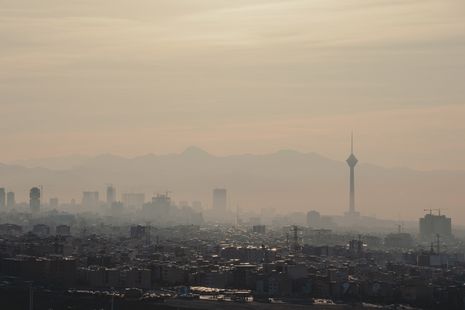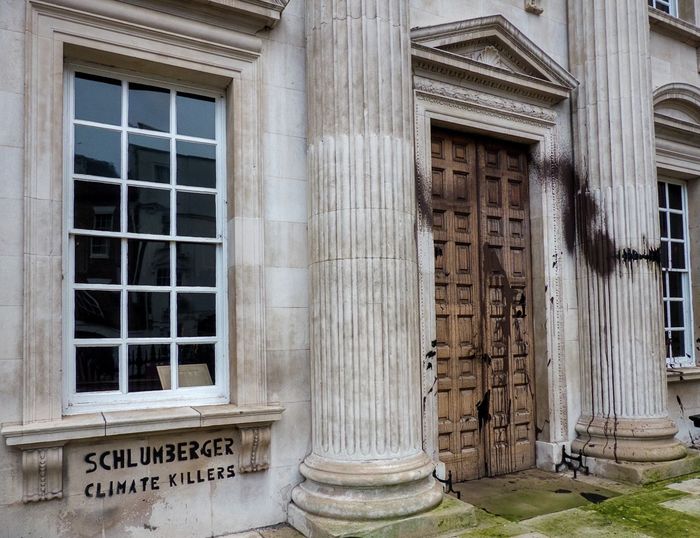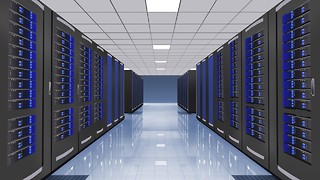Don’t be fooled into thinking air pollution affects us all equally
Air pollution is a serious public health crisis which affects us all, but especially the most disadvantaged, and we need to act fast to prevent more harm, warns columnist Christina Okafor

Sitting outside at home, blue skies surround me – the perfect winter’s day. The birds sing. The leaves of the trees rustle. Traffic buzzes and hums – car horns, ambulance sirens, and low-flying planes. I look up and white trails scatter the sky. For lots of us, the natural and unnatural parts of the environment have always been one. In the suburbs of east London, I’m constantly surrounded by the background noise of traffic.
Living in central Cambridge, we’re removed from the visible constant pollution faced by many. The centre of town has low traffic, bikes are encouraged and there is an abundance of green spaces. People walk or Voi – a need for a car is near non-existent. In stark contrast, a couple of weeks ago, Londoners were warned to limit their outdoor exercise when pollution levels were set to soar. The Government UK Air website forecasted a rare episode of “very high” pollution ranked ten out of ten for potential harm, the first such incident since March 2018. People with lung or heart problems were advised to avoid strenuous physical activity while healthy people were told they should “reduce physical exertion, particularly outdoors”.
“In the UK, air pollution is the largest environmental risk to public health”
Air pollution has been decried by the World Health Organisation as the “silent killer”: it can harm every organ in your body, acutely as well as chronically. Cancer, asthma, obesity, and dementia have all been linked to air pollution impacts. Air pollution harms future generations before they’re even born. Fertility is reduced and rates of miscarriage are increased by toxic air. Babies are also more likely to be born with low birthweights.
In the UK, air pollution is the largest environmental risk to public health. The first death from air pollution in the UK was announced in April 2021: a 9-year-old girl, Ella Kissi-Debrah. She had severe asthma and died in 2013 after being exposed to high levels of nitrogen dioxide and particulate matter pollution, largely from traffic emissions.
Air pollution is by no means a great equaliser. It is a magnifier of inequality. Like all health problems, certain communities are disproportionately affected. People from socially and economically disadvantaged backgrounds, such as ethnic minorities and migrant communities, are exposed to higher levels of air pollution and are hardest hit by the long-term health effects. Air pollution disproportionately affects Black mothers; US studies found Black mothers were at a greater risk of preterm births as a result of exposure to air pollutants. Similar studies have yet to be carried out in the UK. Ella Kissi-Debrah was a young Black girl. In London, schools with the highest percentage of non-white pupils have higher than average levels of nitrous oxides. Air pollution will only heighten health inequalities within the UK.
“The focus needs to be on building better public transport systems that provide affordable travel throughout the day and night”
Air pollution is something that I think about frequently when I’m at home. In Cambridge, you can often forget about these problems. However, once many students graduate and flee to their consultancy job, living in Clapham or other built-up areas, they need to be conscious of the impact air pollution has on the health of the local population.
We all know there are things we can do on an individual level to cut down air pollution: walk more, use public transport, don’t drive around cities in SUVs. However, it’s important to look at this neoliberal ideology with suspicion. Sure, don’t eat meat and don’t take £4.99 flights, but these systemic problems will not be resolved through changes to individual actions. Ultimately, what we need is government policies to reduce air pollution, while also improving and building sustainable travel infrastructure.
Mayor of London Sadiq Khan has recently announced plans to introduce a “clean air charge”, where drivers could pay £2 to drive a petrol or diesel car in London. However, at the same time vital night tube services have been squeezed into non-existence and travel prices are steeply rising. Targeting individual drivers may discourage some, but will mostly impact the least well-off drivers, rather than the wealthiest SUV drivers where a £2 daily charge won’t make a dent in their pocket. As students, luckily everything we need is a walk or cycle away. However, if you need to travel around Cambridgeshire, buses are often unreliable, and it’ll work out quicker and cheaper to drive. The focus needs to be on building better public transport systems that provide affordable travel throughout the day and night, while simultaneously providing a safe environment for those who work on them.
This problem is not just a London problem, or a Cambridge one. It’s a global problem where the actions of the world’s richest, which in Cambridge we are a part of, impact the world’s poorest communities. If the pandemic has given us anything, it’s given us the potential to imagine another possible world. We just need to ensure that this vision prioritises people most disadvantaged.
 Features / Beyond reality checkpoint: local businesses risking being forced out by Cambridge’s tourism industry15 October 2025
Features / Beyond reality checkpoint: local businesses risking being forced out by Cambridge’s tourism industry15 October 2025 Comment / Bonnie Blue is the enemy, not the face, of female liberation13 October 2025
Comment / Bonnie Blue is the enemy, not the face, of female liberation13 October 2025 News / Cambridge climbs to third in world Uni rankings11 October 2025
News / Cambridge climbs to third in world Uni rankings11 October 2025 News / Join Varsity this Michaelmas13 October 2025
News / Join Varsity this Michaelmas13 October 2025 Features / How to spend a Cambridge summer12 October 2025
Features / How to spend a Cambridge summer12 October 2025











